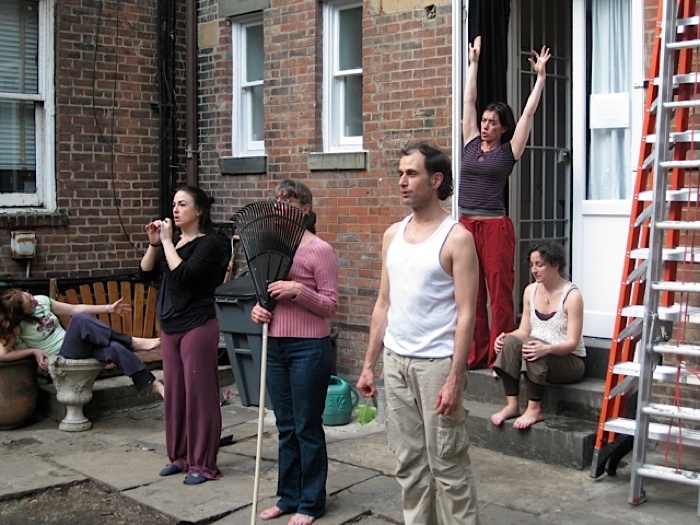Training with foolsFURY for the stage and for life
A couple of weeks ago I wrote a round-up of some of the theatre companies in the Bay Area who offer classes and actor trainings for professionals and non-professionals alike, but since there are far more companies than I had word count with which to cover them, I could only feature a representative few, and therefore focused mainly on smaller, more underground companies specializing in one or two specific disciplines or techniques.
One company I regretted not having space for was foolsFURY, whose devotion to training their own actors has given rise to an extensive schedule of workshops open to the public since 2006. I finally caught up with associate artistic director Debórah Eliezer to get the details.
SFBG: What is foolsFURY’s main goal in offering actor trainings?
Debórah Eliezer: Our trainings offer a window into the world of ensemble-theater creation, which is very process-oriented and specific to those in the room. It’s our hope that the general public and artists alike gain skills they can take away to create their own life as a work of art, back to their own profession to influence team building.
SFBG: How closely do the classes you offer resemble the rehearsal/creation process foosFURY uses in creating its own works?
DE: All the workshops we offer are a “way in” to our signature training process. That is to say that everything we teach we use as a platform for making work. Our Vital Act two-week intensive (June 2013) remains our signature program of foundation skills and includes a compositional element to give students a taste of what it’s like to create work as we do in ensemble.
In rehearsal for a play, foolsFURY will always use the Viewpoints to massage our understanding of character relationships, location, and text, or just plain blow off some steam and get together as a group. We’ve found the Suzuki method to be the single quickest way for actors to get present and focused. It’s also a constant reminder of the theatrical potency of rigorously challenging oneself. We always incorporate vocal training and improvisational circle singing even if there is no singing in the production.
Some by-products of our training reflected in our work would be characterized as very clear body awareness. To us, theater, voice, and dance are very closely connected. By the time we bring a show to production, we’ve made deliberate choreographic choices about our bodies in time and space — what the audience sees is a distilled “best of” our process spent weeks and sometimes years in rehearsal.
SFBG: You mentioned earlier that you felt that performing arts training was “training for life” not just for art. Care to expand on that?
DE: I teach and personally follow the belief that theater training informs how I live my life and, life informs my theater training. The same principles of space, time relationships, and creative strategy are applicable and translatable for both making compelling theatrical experiences and having a rich, satisfying life.
SFBG: Care to hazard a guess as to how many students in total have taken at least one foolsFURY training/workshop?
DE: Our adult programs serve 125-200 students per year, depending on if we’re also teaching workshops outside of SF and if we’re offering a festival that year. That number includes our internship program, which serves about 10-15 young artists per year. Swivel Arts, our youth spring and summer camp program, which ran from 1998-2010, offered two-to-six weeks of camp per year and served about 150 elementary and teen kids each year. In total, over the years? This would have to be well over 2000 students!

